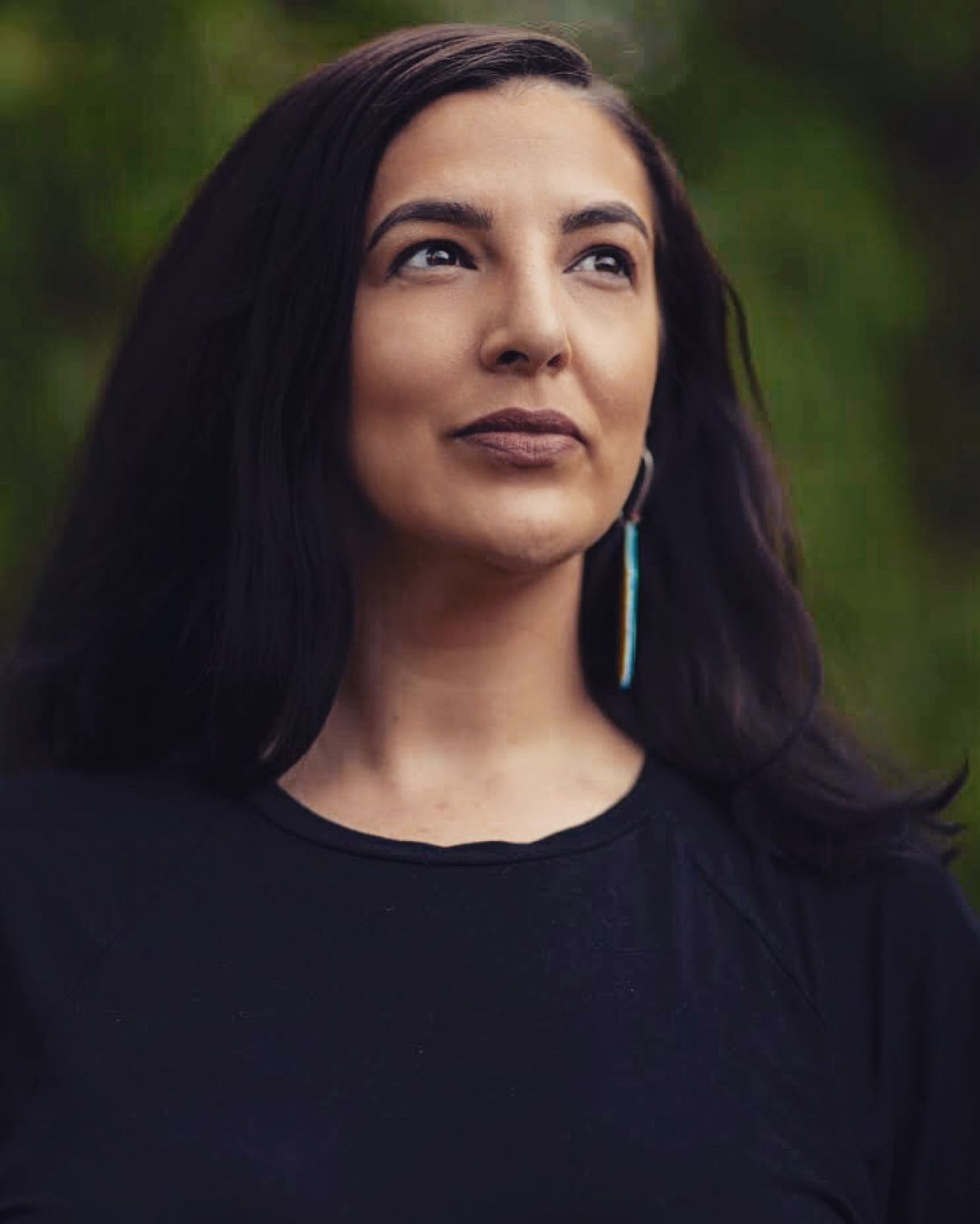Opinion | For many Indigenous people, Thanksgiving is a time of mourning
Mom’s green bean casserole, buttery mashed potatoes, sweet yams and pumpkin pie.
Many families and friends will gather around a turkey today to celebrate Thanksgiving, with the perception of love and unity between Indigenous people and white settlers in the United States. But the history of the holiday is one rooted in genocide, where colonizers murdered local Indigenous people.
It is a day many of us mourn, ironically, during a month set aside to celebrate us.
In school, I received the same Eurocentric version of Thanksgiving we were all taught — tales of brave Pilgrims. They navigated their way through a “new, unclaimed world,” so they could pursue a Christian life, free of persecution. Like all my classmates, I made “Indian headdresses” from construction paper and tacky colorful feathers.
It felt wrong, but I didn’t know why, so I trusted the adults.

I remember rooting for the Wampanoag tribe for helping those Pilgrims survive that first winter. I thought about how amazing it was for them to celebrate together, as neighbors, a year later by “breaking bread.”
That story is false. And worse, it makes light of the historical trauma that we are forced to carry on our shoulders. America wasn’t handed over gently by Indigenous peoples for European colonizers to create a great nation dedicated to Christianity and the pursuit of freedom (for them). Indigneous people never conceded to colonialism, that notion needs to be left behind.
Thanksgiving is a complex holiday but by not teaching the truthful history, allows the facilitation of colonial education. So, let’s start with the real story: Upon the arrival of the Mayflower, Wampanoag people were already well established with Europeans for about a century, some had even traveled back and forth to England, and spoke English. Chief Ousamequin welcomed the Pilgrims, but because their tribe had been slave raided by Europeans, this politeness was his greatest effort to protect his people. The iconic dinner was a tourism-ploy to boost the idea that Pilgrims were the founding fathers of America and attract this notion of unity in New England.
President Abraham Lincoln loved it so much that he officiated the holiday during the Civil War to foster unity and present the idea that Indians welcome the takeover of North America.
In teaching the false narrative about Thanksgiving, teachers also (either knowingly or not) portray Indigenous tribes as a monolith. This makes it easier for people to appropriate Indigenous culture, or disregard Indigenous voices.
It was confusing for me as a young adult to address my role as a little Indigenous girl playing the part. At times I felt invisible, forced to wade through the nonsense of misrepresentation and the often cruel jokes I would hear about my community and other tribes. I was one of the few Native children who attended a mostly-white school, despite our school neighboring the reservation I lived on.
Every year, Thanksgiving themes spread over news outlets and social media, with little or no mention that November is Native American history month. Or the fact that Black Friday sits on Native American Heritage Day, which was signed in 2009 by President Barack Obama.
After he signed H.J Res 40 into law, Obama said, “ I encourage every American to join me in observing Native American Heritage day. It is also important for all of us to understand the rich culture, tradition and history of Native Americans and their status today, and to appreciate the contributions that First Americans have made and will continue to make in our nation.”
So, does this mean I don’t want you to celebrate food and family today? Not at all. Celebrating with food and family is important — this has always been valued in Anishinaabek culture.
During dagwaging (fall)- jiibay wiikongewin (Ghost Feast) is reserved the first week of November around Tasewang (All Souls Day) as a time to remember and honor those who have walked on before us. A sacred fire is lit and maintained by a fire keeper and asemaa (tobacco) is offered.
Pipe carriers are invited to offer prayers, along with dewe’iganak (drums) and nagamawinan (songs). We smudge the house or building where the feast is hosted and the food is cooked with giizhik (cedar), weengashk (sweetgrass), mshkadewashk (sage) and asemaa. We ask those sacred medicines to help us with the ceremonies and feast.
We honor those who have passed, and give thanks to all that we received in life because of them.
See what new members are saying about why they donated to Bridge Michigan:
- “In order for this information to be accurate and unbiased it must be underwritten by its readers, not by special interests.” - Larry S.
- “Not many other media sources report on the topics Bridge does.” - Susan B.
- “Your journalism is outstanding and rare these days.” - Mark S.
If you want to ensure the future of nonpartisan, nonprofit Michigan journalism, please become a member today. You, too, will be asked why you donated and maybe we'll feature your quote next time!

